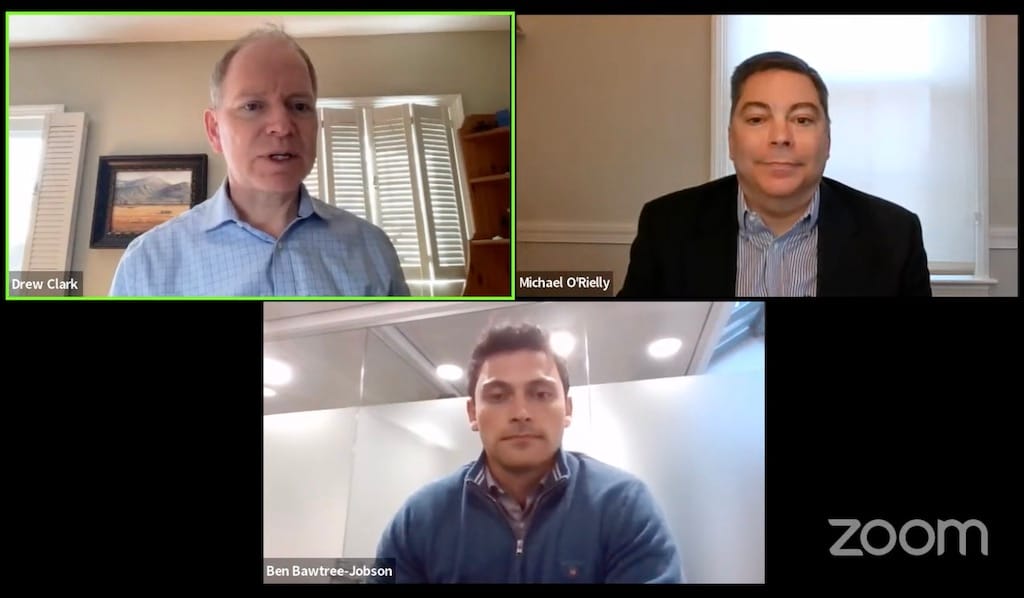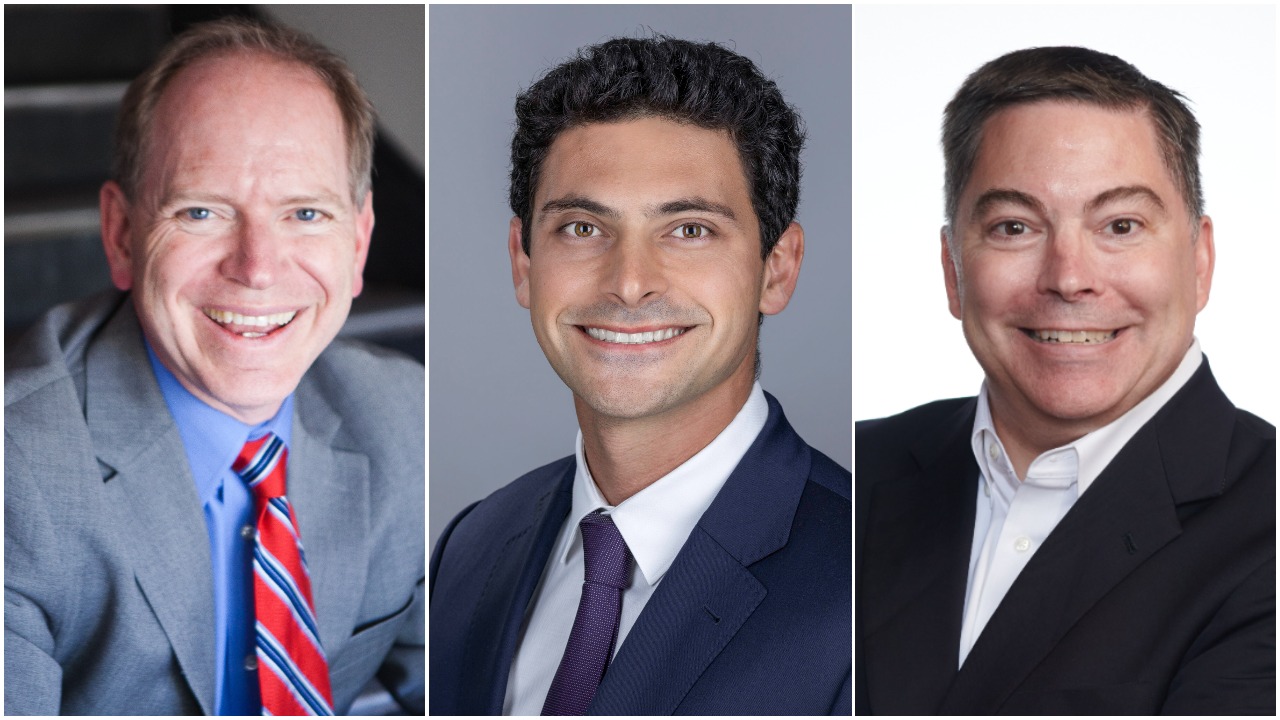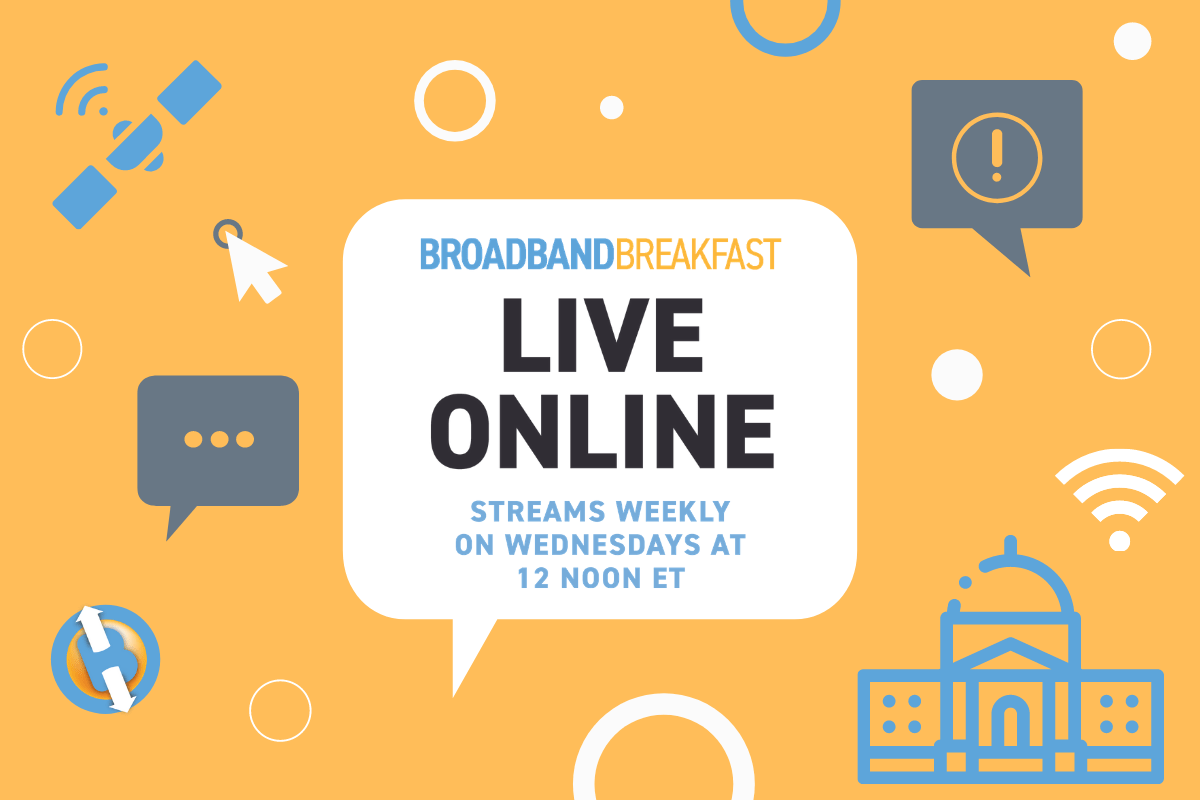Former FCC Commissioner O’Rielly Emphasizes ‘Unserved’ As Priority for Infrastructure Bill Funds
Whether infrastructure money should prioritize those with the lowest speeds has been a chief debate since the bill’s passage.

WASHINGTON, March 15, 2022 – Setting the speed threshold too high for federal infrastructure funding will move money away from a focus on the unserved, said a former Federal Communications Commissioner.
Mike O’Rielly said on a Broadband Breakfast Live Online event late last month that the 100 Megabits per second download and 20 Mbps requirement for money from the Infrastructure, Investment and Jobs Act will see funding flow to better-connected areas, which cost less to update versus installing basic speeds in unserved areas. The argument is in-line with critics who say that speeds in some rougher and harder-to-reach areas require at least some connectivity at first, with gradual increases.
Under the IIJA, “unserved” Americans are those without access to the current 25 Mbps x 3 Mbps federal standard, while “underserved” are those without access to 100 Mbps x 20 Mbps.
O’Rielly was following up on an op-ed he wrote for Broadband Breakfast, which includes a concern that money from the infrastructure bill would go toward areas that are already adequately connected.
The former FCC commissioner made a similar argument nearly a year ago, when he said during a House Energy and Commerce Committee hearing that an initial proposal for 100/100 symmetrical speeds is “out-of-touch” definition of broadband. His chief complaint was that these speeds exceeded consumer needs and that federal dollars for these speeds would just go toward areas already adequately covered.
There has been much debate about how the bill should prioritize service to individuals without access to 25/3 Mbps internet speeds – the current federal standard – as the National Telecommunications and Information Administration is preparing to doll out $42.5 billion to the states for builds.
The policy debate has received input from officials as high ranking as a U.S. senator, with Republican Sen. Marsha Blackburn of Tennessee urging an initial focus on the unserved during a bipartisan panel of senators at the CES 2022 conference earlier this year. (Blackburn was the only senator on the panel to vote against the IIJA.)
What about “newbuilding”?
Opponents of O’Rielly’s view of prioritization feel both unserved and underserved populations should be targeted simultaneously, and that a lack of focus on the underserved operating with relatively slow internet speeds would represent a failure for the IIJA. Chip Pickering, the CEO of INCOMPAS, a trade association for telecom competition, made that argument when he said overbuilding isn’t a bad thing so long as those federal dollars are going toward new, better and faster networks.
Responding to O’Rielly’s position at last month’s BBLO event, Ben Bawtree-Jobson, CEO of open-access telecom SiFi Networks, said he is less focused on the unserved-underserved debate and more focused on public funds going to areas that private capital cannot reach.

Screenshot of Drew Clark, Mike O’Rielly and Ben Bawtree-Jobson
O’Rielly doubtful on new FCC map this summer
O’Rielly also stated that the foremost priority should be on the FCC getting an updated broadband map to allow the NTIA to proceed with dispensing the infrastructure bill funds.
And while Commerce Secretary Gina Raimondo said the new map could come this summer, O’Rielly said he thinks that timeline will “slip.”
Our Broadband Breakfast Live Online events take place on Wednesday at 12 Noon ET. You can also PARTICIPATE in the current Broadband Breakfast Live Online event and REGISTER HERE.

Wednesday, February 23, 2022, 12 Noon ET — A Forum With Broadband Breakfast Expert Opinion Authors
Broadband Breakfast is a leading source of news and events focused on broadband policy and internet technology. We cover the Washington broadband scene, just as we are part of this community. One other important function we serve is as the host of the premier “Expert Opinion” forum on all things broadband. We publish Expert Opinion articles topics including broadband infrastructure, broadband’s impact, and the role of Big Tech companies. In this Broadband Breakfast Live Online session, Editor and Publisher Drew Clark will interview the authors of recent Expert Opinions on Broadband Breakfast
Panelists for this Broadband Breakfast Live Online session:
- Michael O’Rielly, Former Federal Communications Commissioner, Principal, MPORielly Consulting, LLC
- Ben Bawtree-Jobson, CEO, SiFi Networks
- Drew Clark (moderator), Editor and Publisher, Broadband Breakfast
Panelist resources:
- Don’t Repeat Past Mistakes, or How to Wisely Spend Federal Broadband Money, by Michael O’Rielly, Broadband Breakfast Expert Opinion, February 9, 2022
- Internet Service Providers Benefit From a Shared Fiber Network Infrastructure, by Ben Bawtree-Jobson, Broadband Breakfast Expert Opinion, August 23, 2021
- Ask Me Anything! with Ben Bawtree-Jobson, Broadband.Money interview, January 28, 2022
- Ben Bawtree-Jobson Built Open Access Fiber Before it Was Cool, Broadband.Money profile, January 26, 2022

Drew Clark is the Editor and Publisher of BroadbandBreakfast.com and a nationally-respected telecommunications attorney. Drew brings experts and practitioners together to advance the benefits provided by broadband. Under the American Recovery and Reinvestment Act of 2009, he served as head of a State Broadband Initiative, the Partnership for a Connected Illinois. He is also the President of the Rural Telecommunications Congress.
Ben Bawtree-Jobson is CEO of SiFi Networks, which funds, builds and owns FiberCity networks. Internet Service Providers, 4G/5G carriers and other service providers wishing to deliver ubiquitous high-speed broadband services to business and residential properties in cities make use of FiberCity networks, which also offer connectivity for city-wide Internet of Things applications.
Michael O’Rielly served as a Commissioner at the Federal Communications Commission from 2013 through 2020. He is currently President at MPORielly Consulting Inc., a Visiting Fellow at the Hudson Institute, and a Senior Fellow at the Media Institute. Before joining the FCC, Mr. O’Rielly held a variety of leading staff positions during 20 years on Capitol Hill in both the U.S. Senate and House of Representatives, ending as Policy Advisor in the Office of the Senate Republican Whip.
WATCH HERE, or on YouTube, Twitter and Facebook.

As with all Broadband Breakfast Live Online events, the FREE webcasts will take place at 12 Noon ET on Wednesday.
SUBSCRIBE to the Broadband Breakfast YouTube channel. That way, you will be notified when events go live. Watch on YouTube, Twitter and Facebook.
See a complete list of upcoming and past Broadband Breakfast Live Online events.








